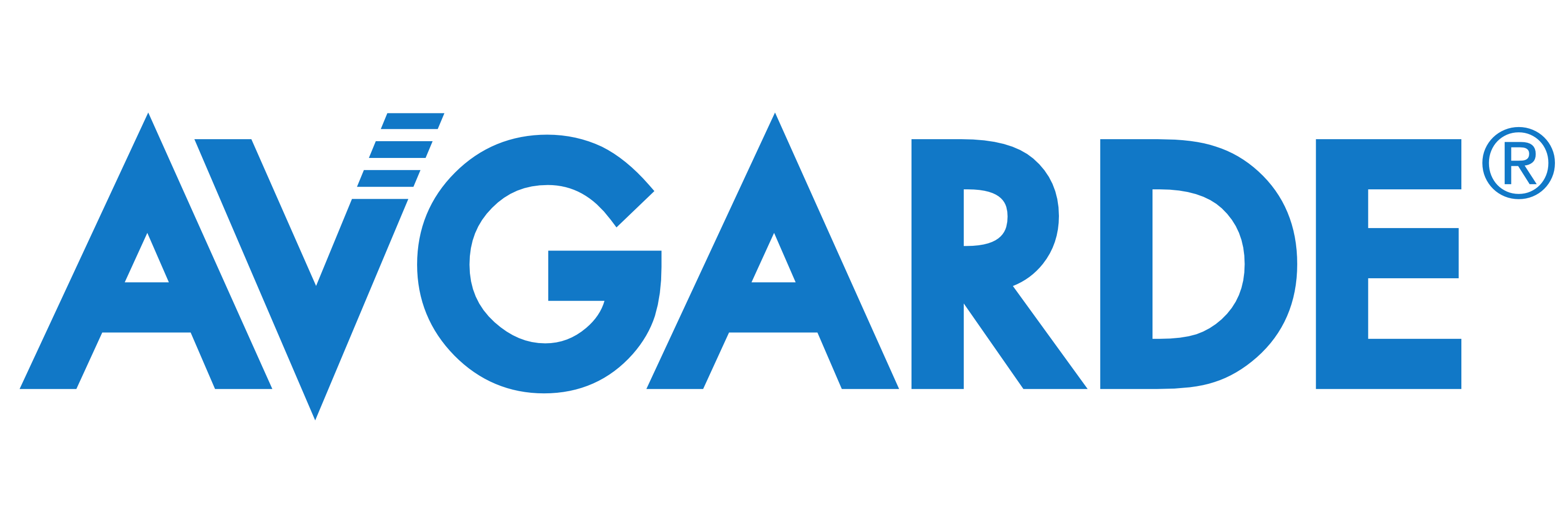More
Is a startup accelerator program a good choice for me?
Published
3 years agoon


Absolutely! If accepted into the right program, there is no better way for an early-stage startup to scale and find the best investors. But you may wonder how to go about it. Since 2005, accelerator programs have become a trend in the investment sector. Globally, there are close to 200 active startup accelerators today. In this sea, how to choose the right fit? Let’s begin with the basics.
What is a startup accelerator?
Startup accelerators are intensive mentorship programs. They help startups crunch 3-5 years of the growth process into 3 – 6 months. Yes. You heard that right. This is why they are called ‘Accelerators’. Most of them provide a seed fund of $10K – $25K in exchange for 0 – 10% equity in graduating startups. But accelerator programs are best known for their ‘Demo Day’, the final day at the end of the program when startups pitch their accelerated, scaled-up pitch decks to potential investors. That is the moment of truth. Apart from these, there are upcoming programs that offer a longer engagement.
Broadly, based on their operating structure, startup accelerators are of three types:
- Venture funded: These are driven by Venture Capitalists with the sole aim of profits. They look for quick and massive ROI over a short period. The startups they choose to fund must show a promise of higher returns over a 3-5 yr period when compared to regular investment instruments.
- Government funded: These accelerators have a broader goal beyond short-term profits. They nurture startups with a potential for the greater good such as job creation, reviving local economies, creating applications for government projects, staying ahead in the global competition for tech innovations, and the likes.
- Corporate funded: Corporate-sponsored startup accelerators nurture new ideas usually to further their business vision. For example, giants like Microsoft, Google, Facebook run accelerator programs to support innovations. If it fits, they might end up acquiring some of them.
Beyond these, startup accelerator programs have defined goals. Their operating industry, funding structure, mentor network, skill development programs, course duration, on-site requirements, investor network, alumni support, and geographies are well defined. So make sure you thoroughly research various accelerator programs before choosing the right one.
First startup accelerator – Y Combinator
This is where the accelerator story began. In 2005, Paul Graham, Jessica Livingston, Robert Morris, and Trevor Blackwell founded a 12-week on-site program for early-stage startups. Their flagship program based in Mountain View, California accepts two batches a year focusing on finance, impact investing, and virtual currency industries. They have a special focus on black/African, American-led, and women-founded startups.
Over the years, Y Combinator has diversified its accelerator programs to suit various geographies. They excel not only in their on-site curriculum but alumni support as well. Startups graduating out of Y Combinator become part of an elite network of entrepreneurs, investors, and industry experts. Y Combinator also runs an online Startup school that is accessible from anywhere in the world. As of 2019, they have made 4000 odd investments valued close to the US $155B. Today, Y Combinator is the most successful startup accelerator program in the world.
What do startup accelerators provide for startups?
Startup accelerators provide the best growth opportunities. Besides the mentorship, networking, and the basic seed fund, they do not promise success but the best shot at it. Here are some of the opportunities you can expect from a startup accelerator:
- One-on-one meetings with industry experts and mentors
- Cohort-based co-working opportunities with fellow founders
- Progress monitoring and evaluation
- Capacity building of the Startup business process
- Possible connections with early adopters and channel partners
- Focused, goal-driven work culture
- Cross-learning and problem solving
- Experiential learning
- Access to potential investors on demo day, extended network
Pros and cons of startup accelerator
As an idea, accelerator programs are great. But if you are not ready for the fast ride, these programs can set you back massively. Time is the most precious resource in a startup journey. Before committing to an accelerator program that usually demands the presence of at least one founder and the core team for the entire duration of the course, it is best to analyze all aspects of it. Here are some of them:
Benefits of startup accelerators:
- Focused training to raise funds from top investors in the industry
- Assured seed fund at graduation
- The startup journey can be lonely. Accelerator programs create cohorts for founders across various industries to brainstorm and learn from each other
- Build strong relationships with mentors, industry experts, and alumni
- Social validation. Graduating from top startup accelerator programs lends a unique identity to new startups in the market. Investors tend to rely more on their capabilities compared to other companies trying to make it on their own.
Problems of Startup Accelerators:
- Demands 100% presence. This is a non-negotiable term with most startup accelerators.
- Demanding schedules. Accelerator programs run on tight schedules. They facilitate ‘learn on the go’. So there is learning and immediate application.
- Equity dilution. Every accelerator demands equity in exchange for its services and a basic seed fund. A dilution at the seed stage will only magnify the possibilities of higher dilution in the subsequent funding rounds.
- Relocation. Most accelerator programs are on-site. The core startup team has to relocate to the accelerator location and live around the premises for 2 – 3 months.
Thus there are many aspects to a startup accelerator program. If approached with sufficient preparation, the pros might outweigh the cons. As a startup founder, you cannot deny the gravity and timing of investments. Startup accelerators provide access to just that and much more. Then how should you approach this? What is the right time to consider an accelerator program?
When should I choose a startup accelerator program?
When you are ready. As a founder, make sure to ask yourself if you and the company are ready for an accelerator program. It is a myth that an accelerator guarantees success. As if it was a formula to become a unicorn overnight. In fact, it is the other way round. Accelerators need you to be at your best. Else it is a wasted opportunity. These programs are highly competitive with an acceptance rate of 1 – 3% only. So make sure you make the best of it. Here are some pointers to determine your ‘readiness’ for an accelerator program. You are ready when:
- Startup has reached the early-seed or seed stage
- Startup has a co-founder
- Startup has an MVP
- Startup has sufficient market research data to establish the viability of the prototype
- Startup has a business plan
- Startup ready for a growth spurt
- Startup has a core team of experts who can learn and deliver under high pressure, portray leadership skills
- Startup team can commit 100% time to the accelerator program beyond managing the company on a day-to-day basis
- Startup ready to part with 5 – 10% equity in exchange for the deliverables of the accelerator program
- Startup ready to part with an additional 10 – 20% equity for the seed round on Demo Day
- Startup core team ready to relocate to accelerator site
- Startup has all legal documents in place
- Startup has a minimal error process to update and maintain cap tables
Once you have checked all these boxes, you can rest assured that an accelerator program will work in your favor. But this is only one side of the story. What about the merit of an accelerator program? If you have worked so hard to create a credible company, shouldn’t you check the potential of the ones choosing you? Will they do justice to your time and efforts? Here is how you can approach this situation.
- Do a thorough background check of the accelerator program. Check with their alumni and market feedback
- Do their goals align with your company? With 5 – 10% equity they will become your shareholder. Ensure you are allowing management access to the right people
- Check their curriculum. It should include courses that strengthen your fundamentals in startup operations such as legal, business model, finance model, equity management, due diligence, and the likes
- Check how they monitor progress and performance. Do these metrics suit your business?
- Visit their premises and check facilities
- Verify their engagement levels. Ensure their goals are pragmatic
- Verify mentor profiles. Ensure they are seasoned entrepreneurs with real industry experience
- Verify investor network. Research their Demo Days. Who participates? What is their credibility? Transparency in financial transactions, etc.
- What happens after you pass out of the program? How is the alumni support?
Popular startup accelerators
There are more than 100 startup accelerators and the number keeps growing by the day. To get you started, we have compiled a list of the top 10 based on the amount of seed capital raised:
Y Combinator
Duration: 3 months
Headquarter: Mountain View, California
Companies launched: 1801
Seed fund: $39,839,695,289
Track record: 4000+ investments, 354 exits
Top brands:
Stripe, Airbnb, Cruise, Automation, DoorDash, Coinbase, Instacart, Dropbox, Twitch, Reddit
Techstars
Duration: 3 months
Headquarter: Boulder, Colorado
Companies launched: 1336
Seed fund: $8,664,791,204
Track record: 3,300+ investments, 310 exits
Top brands: Bench, Digital Ocean, FullContact, SendGrid, and Zagster
500 Startups
Duration: 4 months
Headquarter: San Francisco, California
Companies launched: 686
Seed fund: $3,195,638,016
Track record: 2,600+ investments, 288 exits
Top brands: Twilio, Credit Karma, SendGrid, Grab, GitLab, Bukalapak, Canva, Udemy, TalkDesk, Intercom, Ipsy, MakerBot, Wildfire, and Viki
AngelPad
Duration: 3 months
Headquarter: San Francisco, California
Companies launched: 153
Seed fund: $2,234,261,983
Track record: 175+ investments, 36 exits
Top brands:
Buffer, CoverHound, MoPub, Postmates, Astrid, Drone Deploy, Ribbon, Pipedrive, Rolepoint, and Vungle.
Seed Camp
Duration: Customized to suit shortlisted candidates
Headquarter: Shoreditch, London
Companies launched: 118
Seed fund: $1,124,789,400
Track record: 400+ investments, 43 exits
Top brands: UiPath, TransferWise, Revolut, Hopin, Wefox, Grover, Viz.ai, Sorare, and Trestle
The Alchemist Accelerator
Duration: 6 months
Headquarter: San Francisco, California
Companies launched: 344
Seed fund: $1,036,045,522
Track record: 540+ investments, 37 exits
Top brands: LaunchDarkly, Rigetti Quantum Computing, mPharma, Matternet, and Mightyhive
DreamIT Ventures
Duration: In 4 phases, distributed over a year
Headquarter: Greater New York Area, East Coast, and Northeastern US
Companies launched: 197
Seed fund: $1,032,491,096
Track record: 370+ investments, 38 exits
Top brands: LevelUp, Trendkite, SeatGeek, HouseParty, Adaptly, Wellth, Biomeme, Tissue Analytics, Redox, Eko Devices, Raxar, Cylera, and Elevate
Amplify. LA
Duration: 4 months
Headquarter: Venice, California
Companies launched: 36
Seed fund: $689,256,760
Track record: 140+ investments, 17 exits
Top brands: Tapcart, Candid Wholesale, Carpay, Lantern, Abstract, Strike Graph, Return logic, Good fair, Stack Commerce, RadPad, Bitium, Mover, and Mapsense.
Mucker Lab
Duration: Phased over 1 yr
Headquarter: Santa Monica, California
Companies launched: 27
Seed fund: $628,025,626
Track record: 9 investments, 3 diversity investments
Top brands: Alcatraz, Artful, Bambee, BloomNation, Butter, Citruslabs, Cloverleaf, Emailage, GoFor, Hologram, Honey, Leaselock, Papaya, ShipHawk, TrunkClub, and Workfast.
FounderFuel
Duration: 4 months
Headquarter: Canada
Companies launched: 69
Seed fund: $596,485,083
Track record: 94 investments, 13 exits
Top brands: Sonder, Transit, Mejuri, Bus.com, Unsplash, XpertSea, LoginRadius, BenchSci, and Ready Education
Conclusion
Since the launch of Y Combinator in 2005, startup accelerators have become a trend. To nurture and launch startups for a small percentage of ownership in their companies has become a profitable investment strategy. They promise higher returns when compared to traditional investment instruments. Hosting a startup accelerator program and graduating out of one is a symbol of market leadership today. As a startup founder make sure to weigh all the pros and cons before embarking on this journey.
Sarath C P is a Digital Strategy Consultant at IncParadise (www.incparadise.net). He is a part-time blogger and his favourite hobby is traveling and listening music.


You may like
More
Brand Evolution: The Role of a Strong Community in Today’s Landscape
Published
7 days agoon
April 18, 2024

In the whirlwind of modern business, brand success has shifted beyond marketing muscle and slick products. Today, a brand’s true strength lies in the tapestry it weaves with its community.
This article explores how fostering deep community connections isn’t just a PR win, but a strategic thread in brand evolution, leading to positive societal impact.
Engaging Local Talent: A Win-Win for Brands and Communities
In a time when globalization is the norm, local authenticity and craftsmanship are becoming more and more valued. Employers now have a rare chance to interact with regional artists, craftspeople, and artisans. By doing this, businesses may take advantage of the diverse pool of local talent, giving their goods and services a unique appeal that appeals to the community.
This is more than just a commercial relationship. It’s about creating a supportive network wherein local talent can display their abilities and businesses can become more genuine and establish stronger ties with their target audience. For example, a neighborhood coffee shop that sources its décor from local artists not only enhances the aesthetics of the area but also conveys a compelling narrative to its customers.
Fostering Community Relationships Through Support and Collaboration


Fostering strong relationships with the community through support and collaboration is an essential aspect of modern brand evolution. This approach goes beyond traditional business practices, focusing on creating a symbiotic relationship where both the brand and the community benefit mutually. Engaging in community support and collaboration can take many forms, and each offers unique opportunities for brands to strengthen their ties with the people and organizations around them. One effective way to foster these relationships is through partnerships with local community organizations. Brands can collaborate with schools, non-profits, or local government initiatives to support various projects.
These partnerships might involve sponsoring local events, providing resources for community programs, or even offering expertise and manpower for community development projects. By doing so, brands can play an integral role in addressing local needs, from improving educational facilities to enhancing public spaces, thus directly impacting the quality of life within the community.
Amplifying Brand Image Through Community Endorsements
A happy consumer is a brand’s greatest ambassador. Local communities naturally become brand ambassadors when they gain from a business’s actions, whether it is through partnerships, employment possibilities, or support for neighborhood projects. Positive evaluations and recommendations from neighbors have more weight than any amount of sponsored advertising.
Being involved in the community also makes it easier to communicate real stories. Brands can create content that is not only promotional but also endearing and approachable by sharing stories about their community activities and collaborations. This strategy can greatly improve your branding by gaining consumers’ trust and making it seem more approachable.
Environmental Stewardship: A Commitment to Sustainability


Environmental stewardship is becoming an ever-more-important part of corporate identity in today’s environmentally conscious market. Brands that actively promote environmental sustainability in their communities not only contribute to the creation of a healthy planet but also win over more and more environmentally concerned customers. This commitment can be made in a variety of ways, like by endorsing local environmental projects or integrating energy-saving practices into business processes.
For example, an Indian business might launch or support a campaign to reduce the quantity of plastic waste in surrounding rivers. A business in Australia might start paying more attention to reducing water bills by hiring the best plumbers in Sydney and choosing more affordable resource providers. These programs not only help protect the environment, but also demonstrate the brand’s commitment to sustainability—a quality that consumers are starting to value more and more.
Brands can also participate in educational programs to increase community knowledge of environmental issues. In addition to educating, workshops on energy saving, recycling, and sustainable living techniques foster a sense of camaraderie among participants around common environmental objectives.
Enhancing Digital Engagement and Accessibility in the Community


Improving digital engagement and accessibility is a crucial part of brands’ community involvement roles in today’s digitally-driven society. With technology playing a more and bigger role in daily life, brands are in a great position to close the digital gap and create a more cohesive community. This role is especially important because it fills a critical need in many communities and is in line with current trends. First, companies can fund projects aimed at improving digital accessibility.
This could entail building up community tech hubs where people can access and learn about digital technologies, giving free Wi-Fi in public areas, or supplying technology resources to poor schools. By improving digital access, brands help to ensure that all members of the community, regardless of their economic background, have the opportunity to have their voices heard.
Championing Social Causes and Community Wellbeing
Getting involved in advancing social causes and enhancing community welfare is one of the best ways for brands to make a lasting impression. In today’s socially conscious market, brands are expected to be more than just providers of goods or services; rather, they are seen as vital parts of the communities they serve. Brands can build deeper connections with their customers and the community at large by aligning with social causes and sponsoring them. This engagement can take many forms, such as coordinating or taking part in health awareness campaigns or lending support to regional nonprofits and charities.
For example, to encourage physical fitness and wellbeing, a company could fund neighborhood sports events or collaborate with a nearby health group to offer free health check-ups. Such initiatives not only aid the community but also align the brand with values of health and wellness, which can be particularly appealing to health-conscious consumers.
In conclusion, a brand’s development in the modern world is closely linked to its standing within the community. Developing partnerships, involving local talent, and actively contributing to community welfare are important tactics that can promote mutually beneficial growth for the business and the community. By doing this, brands leave a lasting legacy that transcends financial success in addition to improving their reputation and making significant social contributions. Brands that place a high priority on community involvement are likely to become industry leaders as they negotiate the complexity of contemporary business.


Businesses and individuals are switching to electric vehicles in ever-increasing numbers. Latest figures show there were more than 1 million fully electric cars registered in the UK in February 2024 on top of a further 56,000 electric vans and 620,000 plug-in hybrids.
Now, with a government ban on the sale of all new petrol and diesel cars due to come into force in 2035, more and more businesses and employees will be trading in their polluting fossil-fuel company vehicles for a zero-emissions electric model.
From salary sacrifice schemes to tax benefits, business car insurance specialists, Keith Michaels has weighed up the advantages and disadvantages of driving an electric company vehicle in 2024 and explained what this means for employers and benefit in kind (BiK).
The Pros of EV Company Cars
Owning a company car was once a tax-efficient benefit designed to stimulate the UK car market. That benefit soon became diluted as governments clamped down on benefit-in-kind rules, making company cars less desirable for businesses and employees alike.
The rise in electric cars changed attitudes again thanks to attractive benefit rates for employees and tax deductions for employers aimed at encouraging uptake in EVs, reducing carbon emissions, and helping the government meet its Net Zero target.
With electric vehicle technology constantly improving, it’s no surprise that businesses are now choosing EVs over standard motor options. Not only is this good news for the environment but there’s less maintenance and lower running costs with electric vehicles compared to those powered by combustion engines.
The advantages of EV company cars for both businesses and employees in 2024 include:
Emission-based tax benefits
Businesses may offer employee salary sacrifice schemes in return for an electric company car with zero emissions as it delivers substantial savings through tax benefits. Instead of calculating emissions, tax rates are fixed for all electric company cars, so businesses won’t pay Class 1 National Insurance contributions on the salary given up, but 1A National Insurance on the lower amount of benefit in kind instead.
Unlike other so-called benefits in kind such as mobile phones or health insurance, income tax charges for electric cars aren’t based on foregone wages, but rather a percentage of the car’s list price as defined by HMRC. For fully electric vehicles, the rate is 2% until 2024/25 rising by a further 1% each year until 2027/28 when it will freeze at 5% which remains substantially less than the taxable value of a petrol or diesel car.
VAT savings
Another tax benefit of electric company cars is that employers can recover any VAT incurred for employees who charge vehicles at work or at public charge points. At present, HMRC states that this doesn’t apply to employees who charge their company EV at home, and they are not entitled to recoup any VAT for business use.
Purchase price discounts
Employees who enter an EV salary sacrifice scheme in the workplace can take advantage of potential discounts on the purchase price compared to buying the car outright. Most dealers and manufacturers are crying out for guaranteed buyers for their electric fleets and are likely to entice new customers with significant cost savings and attractive packages.
Zero congestion charges
Any employee driving an electric company car will be exempt from paying congestion charges in the UK where they apply. Similarly, company EV drivers don’t have to pay Clean Air Zone charges which are currently in force in Birmingham, Bristol, Aberdeen, Dundee, Edinburgh, and Glasgow and will soon roll out across other towns and cities. Company EVs are also exempt from London’s ULEZ charges which currently stand at £12.50 per day for vehicles that don’t meet the strict emissions criteria.
The Cons of EV Company Cars
Electric company cars provide many benefits for businesses and employees, but there are also disadvantages to consider. From a reduction in take-home salary to limited vehicle options, the drawbacks to driving a company EV include the following:
Lower take-home salary and pension contributions
While salary sacrifice schemes can be financially beneficial for employees, they also mean a reduction in take-home salary. This is because the cost of the EV is deducted before National Insurance contributions and taxes apply, potentially leaving workers with less money and a smaller budget at the end of each month. Similarly, salary sacrifice schemes can also negatively impact workplace pensions as a reduction in gross salary means lower pension contributions. This could have long-term implications for an employee’s retirement pot and affect their future financial security.
Mortgage and loan challenges
Any reduction in take-home salary resulting from a salary sacrifice scheme could harm an employee’s ability to secure a mortgage and limit their borrowing capacity for loans. Mortgage providers generally base their rules around lending on an employee’s income and monthly expenses. Therefore, a lower take-home salary could be detrimental for employees looking to secure a mortgage or loan or affect the terms of interest they are offered.
Limited electric car selection
Those who enter an electric company car salary sacrifice scheme are unlikely to have an unlimited choice of vehicles. Most employers will have a contract or arrangement with specific manufacturers, giving employees a smaller selection of makes and models of EVs to choose from. Not only that, but some employees may also find they are responsible for the upkeep of their company electric car under the terms and conditions of their salary sacrifice scheme. As a result, the employee could be liable for all servicing, repairs, insurance fees, and ongoing costs which could reduce the financial and tax benefits of a salary sacrifice scheme.
Penalties for early scheme exit
Many EV salary sacrifice schemes offer limited flexibility when employees leave the scheme early or do not meet the pre-agreed terms of the agreement. There are many reasons why this may happen such as workplace changes or new business ownership, but employees are often charged fees or penalties for exiting a scheme early. Also, when an employee changes jobs they may want to transfer their salary sacrifice scheme to their new employer. However, this solely depends on the agreement in place between the employer and the scheme provider and may not always be possible.
Overall, electric company car sacrifice schemes can deliver many benefits for both businesses and employees including tax savings and discounts on purchase prices, lower running and maintenance costs, and zero emission charges. However, EV salary sacrifice schemes can also cause a reduction in take-home salary, penalties for early exits, and limited vehicle choice. Therefore, it is essential to weigh up the pros and cons of any electric company car salary sacrifice scheme to fully understand the obligations and limitations involved with switching from fossil-fuel vehicles to EVs.
More
DeepTech Startup AVGARDE Wins the DRDO Dare to Dream 4.0 Contest for National Level Innovations in Counter Drone Technologies
Published
3 weeks agoon
April 3, 2024

Deeptech startup AVGARDE was declared the winner of the Defence Research and Development Organisation (DRDO) Dare to Dream 4.0 Contest for national level startup innovations in ‘countermeasures for drone and swarm of drones’. Incubated at IISc Bangalore and IIT Guwahati, AVGARDE is building a cutting-edge AI-driven object sensing platform for low-altitude airspace management. Founded in Assam, AVGARDE has offices in Bangalore and Guwahati, with Pan-India operations and associates supporting customers across the country.
The prestigious DRDO Dare to Dream competition provides a unique opportunity for startups and innovators to address key challenges in emerging technologies that can help boost India’s aerospace and defence capabilities, while contributing towards the country’s Science, Technology and Innovation (STI) ecosystem to achieve technological self-reliance.
Manash Bhuyan, Managing Director & Co-Founder of AVGARDE said: “We are honoured and proud to be a winner at DRDO’s coveted innovation contest, Dare to Dream 4.0. This award is a testimony of our globally competitive technology developed by our amazingly talented team. With this recognition, the innovation journey of AVGARDE is further validated as we continue to develop our best-in-class AI-driven airspace management platform for various applications, including drone countermeasures. With the proliferation of drones, the low-altitude airspace is confronted with many potential risks and threats for civilian and military dual-use cases. As we address these new-age challenges, AVGARDE is motivated to develop pioneering indigenous technology and contribute effectively towards a self-reliant India.”
Currently, the AVGARDE DeepSense platform offers three product lines – (1) DroneSafe – an AI-enabled Counter Unmanned Aerial System (C-UAS) to detect, classify, mitigate and report aerial risks/threats from drones, UAVs and other aerial objects; (2) DIWAR – an all-band GPS Jammer for tackling drones and inhibiting its airborne motions; and (3) BirdsEye – an intelligent Bird Detection and Monitoring Radar (BDMR) for dual-use aviation safety and preventing Bird Aircraft Strike Hazard (BASH).
Nilutpal Choudhury, CEO & Co-Founder of AVGARDE said: “This award is a phenomenal milestone for AVGARDE and I have immense admiration and gratitude for our diverse and great team. DRDO’s Dare to Dream is a great platform to validate innovations as it’s a multi-stage screening process with various selection criteria considering aspects of novelty, applicability, implementability, technical merit and maturity. Therefore, it is a great honour to be recognized by DRDO, our country’s esteemed R&D organization for aerospace and defence. Our team is further encouraged to innovate continuously to develop advanced home-grown technologies to fulfill our commitment towards Atmanirbhar Bharat.”
About Avgarde Systems
Avgarde Systems Private Limited (“AVGARDE”) is a radio frequency, wireless technology and artificial intelligence focused deeptech startup building an AI-driven object sensing platform for low-altitude airspace management. With the proliferation of drones, AVGARDE is reimagining wireless technologies to innovate the next generation products for the drone airspace and allied operations, with applications across airports airspace safety, critical infrastructure protection, drone fleet operations, unmanned traffic management, aerospace and defence.
Founded in India as a private limited company, AVGARDE has offices in Bangalore, the world’s fastest growing tech hub, and Guwahati, the gateway to the Northeast – India’s land bridge to Southeast Asia. AVGARDE has incubation and research partnerships with some of India’s top institutions, including Indian Institute of Science (IISc) Bangalore, and Indian Institute of Technology (IIT) Guwahati.
About DRDO – Dare to Dream Innovation Contest
Defence Research & Development Organisation (DRDO) is a premier agency under the Indian Ministry of Defence, which is responsible for the military’s research and development. DRDO technologies have been adopted by the Indian Army, the Indian Navy, the Indian Air Force and others. DRDO also promotes R&D though it’s Technology Development Fund (TDF), which is focused on supporting Micro, Small and Medium Enterprises (MSMEs) and the development of indigenous technologies. To promote startups and innovators, the DRDO Dare to Dream Innovation Contest was launched in honour of Dr. APJ Abdul Kalam, a renowned scientist and former President of India.
The DRDO Dare to Dream Innovation Contest intends to scout and promote individuals and startups for innovations in Defence & Aerospace. With such initiatives, the Defence Research & Development Organisation (DRDO) provides a unique opportunity for startups and innovators to solve some key challenges in emerging technologies that can help boost India’s defence & aerospace capabilities.


A Guide to Help You Find the Best AP Computer Science Tutor


Climate-smart Deeptech Company Ecozen Raises $30 M


BlackSoil’s Investment Grows 40% in FY24; Deploys $118Mn & Clocks 36 New Deals
Saad Kassis Mohamed led WeCare Raises $350000 for Lab-Grown Diamonds
UK-based fintech Nuke From Orbit raises £500k pre-seed funding to deliver smarter smartphone security
Japanese Fintech Leader Smartpay, partners with Chubb Insurance to accelerate digitization of the Japanese Insurance Industry, Anticipated to Surge to 80 Trillion Yen (USD $500 Billion) by 2027
Trending
-



 How to7 years ago
How to7 years agoHow to register a Startup in USA
-
Interview5 years ago
An Interview with Joel Arun Sursas, Head of Clinical Affairs at Biorithm, Singapore
-



 More4 years ago
More4 years ago6 Promising Up and Coming Fashion Companies
-



 More6 years ago
More6 years agoFactors to Consider When Planning Your Office Design and Layout
-



 Interview4 years ago
Interview4 years agoAn Interview with Russell Jack, Southland-based Yogapreneur and Mindfulness Teacher
-



 Other Internet Tech6 years ago
Other Internet Tech6 years agoHow to become an IPTV reseller? A beginner’s guide
-



 More6 years ago
More6 years agoIPTV business for beginners
-



 Business Ideas6 years ago
Business Ideas6 years ago50 Small Business ideas with low investment
